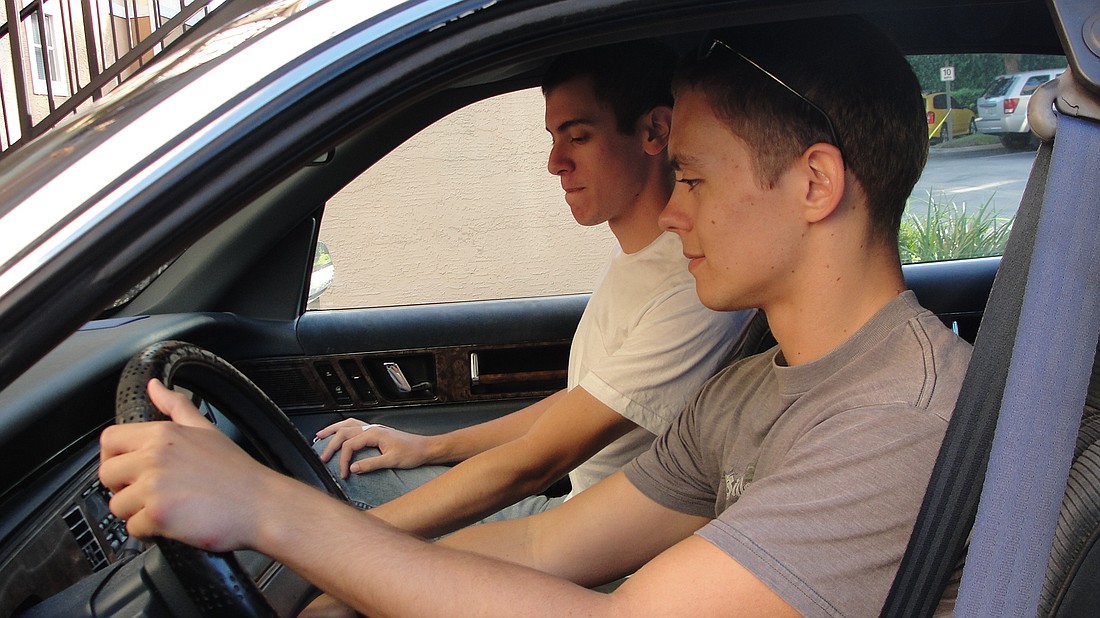- April 19, 2024
-
-
Loading

Loading

Like most third year University of Central Florida nursing students, Rachel Lee is buried under textbooks and studying for her clinical nursing practices, except she is doing it without transportation.
This is tricky since the program requires students to travel twice a week to the clinicals that are scattered all over Orlando – one she attended regularly is near Millennia Mall. Each time, Lee, 20, scrambles to call everyone in her phonebook for a ride.
“I’ve tried the bus, but on Lynx the trip took me two hours,” Lee said. “I usually try and carpool with girls from the nursing program, but we’ve been further split up into different clinical groups so I have to kind of find my own ride. It’s kind of impossible, but I have to get there.”
This summer, UCF unveiled its newest solution to traffic and parking problems on campus: Zimride, an online carpooling service that harnesses social networking to connect drivers and riders. Lee signed up hoping someone would be going her way.
Lee’s online profile matched her up with one of the more than 1,000 students and faculty who’ve joined the free program since it began in June, providing her with a much needed ride to her Thursday clinical.
UCF is the first school in Florida and the largest school in the nation to offer Zimride in the hopes that it will ease parking problems on the campus of 56,000 and alleviate traffic congestion on roads such as University Boulevard and Alafaya Trail, both of which in 2009 had an average of more than 50,000 cars driving on them, according to Hazem El-Assar, chief engineer for Orange County’s Transportation Planning Division.
“I signed up with Zimride after my first day driving to campus. I saw how limited the parking is and thought sharing this situation with someone might help take the load off,” David Meister, 21, a business management student at UCF, said.
During weekdays the largely commuter college is a parking combat zone as students vie for the campus’17,000 parking spaces. They endlessly loop around garages, follow students who are leaving to their cars or simply park on the grass.
An economics professor suggested Zimride to UCF’s parking advisory committee at the end of 2009 as a way to better cope with these parking problems.
“We knew we needed a way to relieve congestion and this ride share program seemed like the way to achieve that,” student body vice president Taylor Lochrane said.
Users login to Zimride with their school e-mail account and create profiles detailing their commute, music preferences, smoking preference, type of car, driving style and price – yes, the students driving can collect a fee for the ride. Zimride will then connect them with others in the network whose locations, destinations and times potentially match. However, responses to matches vary, some reply the next day, others in two weeks and some not at all.
“Setting up a carpool through the site was easy, but I’m not an outgoing person so it was weird to be in a car with someone I didn’t know at first,” Xavier Escobar, 18, a forensic science student at UCF, said.
These profiles can then link up to Facebook pages and websites like Twitter, allowing people to see if they have mutual friends and learn more about each other.
“Students find it easier to use Zimride because it links up with their Facebook page where they have that data already. It also lets users see who of their Facebook friends are on Zimride and if their rides match up,” Lochrane said.
Beneath the profile, users can rate their carpool experience allowing others to know details such as whether a driver is a good conversationalist, always late or likes to smoke in the car.
For security purposes, users can limit the amount of information others see on their profiles and the website’s settings allow only those in the university community to join.
“Zimride creates a way for people to feel more comfortable about who they share rides with,” said John Zimmer, co-founder of the California-based company, whose carpool system has proven successful at 60 other universities, including Stanford University, Cornell University, and the University of Michigan.
Zimride also keeps tabs on the money users are saving and the amount their carbon foot-print is reduced by carpooling. With its current number of users, UCF’s program could save over 10,000 gallons of gas and close to 300,000 pounds of carbon dioxide emissions, according to Zimmer, which helps the university in its goal to be climate neutral by 2050.
Schools using the Zimride system have reported an average annual reduction of 500,000 pounds of harmful carbon emissions while saving over $200,000 a year in vehicle operating costs, according to the Zimride website.
“Carpools are always a good way to reduce congestion, save gas and save energy. All kinds of positive things can come out of this,” Orange County Transportation Manager Renzo Nastasi said.
The university hopes the benefits of saving money, saving gas and reducing harmful emissions will draw in at least 10 percent of the student population by the end of its first year.